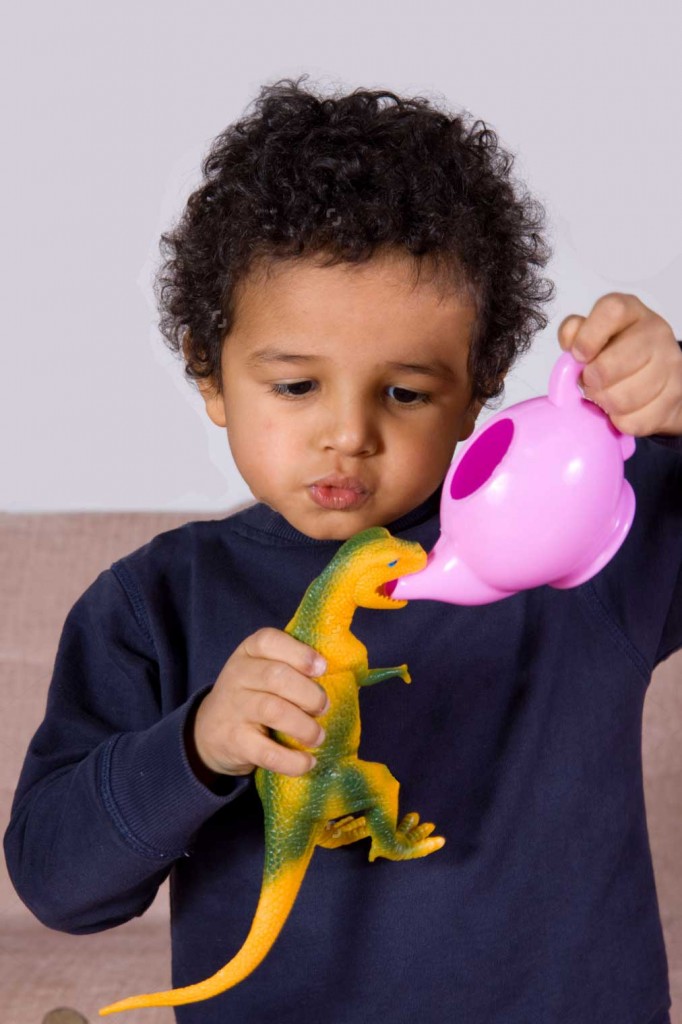About Learn to Play
Learn to Play Therapy grew out of my clinical practice as an occupational therapist working in early childhood intervention services. As I began to understand how to observe and assess a child’s spontaneous ability to pretend in play, I started to understand that many of the children I was working with had solitary and social pretend play levels that were (in many cases) years younger than their chronological age. Knowledge of children’s play ability was very helpful in knowing where to start to play with them, and also what play skills they needed to be able to spontaneously play by themselves and then with others. After many years using Learn to Play Therapy and the privilege of being at a university and in a position to carry out research, I have come to understand much more about children’s play, how to engage them in play, and been amazed at the consequent changes and shifts in a child’s language ability, social interaction, and self-esteem.
 The aim of Learn to Play Therapy is to build the spontaneous pretend play ability of children. One of the great satisfactions of being a therapist, I have found, is to give a child the ability to play by him/herself and with others. In doing this, you become redundant as a therapist as children grow in their ability and generalise their play ability skills to home, neighbours, and early childhood settings.
The aim of Learn to Play Therapy is to build the spontaneous pretend play ability of children. One of the great satisfactions of being a therapist, I have found, is to give a child the ability to play by him/herself and with others. In doing this, you become redundant as a therapist as children grow in their ability and generalise their play ability skills to home, neighbours, and early childhood settings.
Learn to Play focusses on pretend play, as this type of play is the most complex and mature form of play. Pretend play also impacts on language (particularly narrative language), social interaction, and emotional integration of the child’s experiences. The play skills that are the focus of Learn to Play Therapy are: ability to spontaneously self-initiate play, sequencing play actions logically, using objects as something else (object substitution or symbols in play), engaging with a doll or teddy character outside of themselves, integrating their play so a clear play script is evident, role play and socially interacting using play. When engaging with a child in play the principles of Learn to Play Therapy are:
Start simple – start where the child’s play ability is
True Play is fun – emotionally engage the child in the play activity (if it is not fun, you won’t be as effective and the child will not be truly playing)
Regardless of what play skill you are working on, always be aware of: the play script, number of actions in a play sequence, use of symbols in play, and if a doll/teddy is being part of the play. (All these skills must also be understandable by the child and on the child’s play level)
Challenge the child when you think the child is ready. (You introduce a higher level skill or new skill, or problem to the play script)
Work towards the child taking over the play – so they are initiating the play
Always respond to the child
Always monitor that the play is coherent (logical and sequential), if not, bring the child back to an earlier level of play
For further resources please see the Resources page. Workshops and training are also available here.
About Karen

Karen Stagnitti PhD, BOccThy, GCHE. Karen is an occupational therapist by training who has a very strong interest in children’s play and respected within the play therapy community.
Karen graduated with Bachelor Degree in Occupational Therapy from the University of Queensland in the late 1970’s. For more than 20 years, Karen worked in community-based paediatric and specialist early childhood intervention programs. She has extensively worked with families, children, preschool and kindergarten teachers, early primary school teachers, doctors, paediatricians, speech therapists, occupational therapists, paediatric physiotherapists, psychologists, social workers, dieticians, specialist early childhood workers and early childhood workers.
In the early 1990’s she became serious about researching children’s play.
In 2003 she was awarded a Doctor of Philosophy from LaTrobe University in Melbourne. Her research work was primarily focused on how to measure the quality of a child’s pretend play within the confines of clinical practice. The result of this research led to the development of Child-Initiated Pretend Play Assessment (ChIPPA). Since 2003 Karen has successfully trained and supervised dozens of research students including PhDs and has continued to research children’s play including further studies on the reliability and validity of the ChIPPA and extending its applicability to Indigenous communities. The Child-Initiated Pretend Play Assessment 2 (ChIPPA 2) is now available. She has also developed a highly successful intervention play therapy program called Learn to Play. She has developed two new play assessments. One is called the Pretend Play Enjoyment Developmental Checklist for children aged 12 months to 5 years and the other is aimed for older children and teenagers called the Animated Movie Test. Together with colleagues, Karen developed Imagine, Create, Belong, which is a play intervention for 11 to 15 year olds. She is a highly sort after speaker and trainer, delivering dozens of workshops and training sessions each year. She is also frequently invited to present workshops worldwide and various products have been translated in Japanese, Finnish, Portuguese, Croatian and Italian.
Karen was awarded the title of Emeritus Professor at Deakin University in 2019 in recognition of her outstanding contribution to university and continues to contribute to teaching and research in the School of Health & Social Development, Faculty of Health, where she previously held the position of Professor and Personal Chair.




